An Africa of the 21st century is an Africa that is pursuing its place on the global market. It is an Africa that is fueled by potential and an impressive human capital that can contribute socioeconomically as an active member of the global market. There is therefore a need to define the otherwise complex and dynamic international market for businesses and organizations. There are many ways to approach this arena and as such, there is a growing number of entities that are recognizing the value of educational projects as advanced exponents for entering international markets. These projects, often initiated by universities, schools, and educational institutions, not only provide opportunities for knowledge dissemination but also serve as strategic tools for fostering international engagement and partnerships. Here, we shall therefore explore how educational projects can play a pivotal role in expanding Africa’s global reach and influence.
Chief among the steps towards a sustainable place in the global village is ensuring a flexible and adaptable work force for both the present and future modern society. This can be achieved through Academic Collaborations that enhance and maintain Student Mobility. In the physical sphere, this can be obtained through International Exchange Programs and Research Collaborations. With International Exchange Programs, the different educational institutions would draft exchange programs with partner institutions. This allows for student mobility and provides opportunities for students to amass knowledge and understanding of the countries they visit. They foster a sense of comfort for the students as they get to learn different cultures and optional ways of life in the safety of the educational environment.
The same can be said for Research Collaborations that allow students from similar disciplines to work together in their research work. A great example of this is The HIV and AIDS Research Centre in The University of KwaZulu Natal in South Africa that has partnered with and hosted many worldwide researchers that are authorities in the HIV and AIDS space. Similarly, the same approach of collaborations of research was used to keep track of the development of the COVID virus and the adaptive strands that wrecked Southern Africa in the recent past. It must be noted how collaborations of this nature contribute to the internationalization of education and equally, they provide room for innovation that can be shared universally.
With the advancement in technology, Online Learning has become a prudent way in the provision of Global Accessibility. Gone are the days when higher education was confined to lecture theatres at university campuses only. There has been a rise of learning platforms that has made education to be more accessible to global audiences.
The recent pandemic taught the world that, with great ICT infrastructures, a lot could be achieved without physical mobility. To that fact, there is an increase of online courses that are being offered by educational institutions that allow our students to access high quality education. By obtaining internationally recognized accreditations, our domestic students are thus able to contribute economically on a global basis.
Realising the hegemony of E-Learning, many a prestigious universities are resorting to Massive Open Online Courses (MOOCs.) This has been received with open arms especially on the African shores where online learning is seen as being more economical as it allows access to international universities without the financial strains relating to accommodation and transportation. They also allow our domestic students an opportunity for international accreditation without the discomfort of residing in foreign lands where adjustments of one’s culture and lifestyle are mandatory. With the Massive Open Online Courses (MOOCs), universities are able to attract a vast and diverse audience that transcends geographical boundaries. When the students establish study groups, they each would be able to present an array of solutions that are influenced by their domestic lifestyle but can be useful globally. In this way, Massive Online Open Courses are a platform for students to address international issues in a diverse and globally influenced manner.
It is true that the Global Market is a platform where diplomacy and international relations play out daily. To that effect, it is necessary for any nation’s representatives to be able to understand their counterparts regardless of their nationality. Here again, educational entities play a major role by allowing for Language and Cultural Programs that promote cross-cultural understanding. At their core, such programs are aimed at encouraging students to develop a global perspective while enhancing their intercultural competence. Equally, education can be a means for exerting soft power influence. By means of educational partnerships, nations can strengthen their global image and build lucrative relationships with partnering countries.
The advent of Entrepreneurship and Innovation Hubs provided a platform for aspiring entrepreneurs to access resources, mentorship and networking opportunities that enable them an entrance into the international markets with innovative solutions. They provide a platform for industry giants and governments to access and recruit talent that is able to provide universal solutions. Similarly, the Entrepreneurship and Innovative Hubs provide a haven for technology transfer initiatives. Here, research and technologies can become commercialized and introduced to the global markets. In so doing, economic value and international relationships can be fostered. It is important to note that there is a dire need for more Innovative Hubs on many noteworthy university campuses in Africa. For investors unsure of a means to approach our markets or to vet our talent, this is a way which investors can secure their spot through partnerships with our institutions of higher learning.
With all the modern and technologically advanced measures noted prior, it is reassuring to note that classical measures of collaborations are still eminent. The role of Branch Campuses and Transnational Education can not be overlooked. Educational institutions have been known to establish branch campuses or collaborative programs in other countries. Such campuses have been known to expand their presence globally through familiarity whilst benefiting the local educational bodies. Joint degree programs or satellite campuses work in a similar manner by ensuring that their influence, culture and reach is established in different regions as transnational education.
The Global Alumni Network has played a role in the establishment of our modern civil society and it can perhaps be awarded citation for its pivotal role in the outlining of international relations and diplomacy. Many successful diplomatic ties are a result of professional peers from different parts of the world that met and concocted great relationships based on mutual respect on the basis of their appreciation of their common Alumni. Leaders who share a common educational background are leaders who have a common place to start and explore all other facets of their nation’s interest with mutual respect. In this way, educational institutions provide a basis by which future leaders and industry trendsetters can find their peers in different regions. The same networks have been known to formulate business and professional connections that can facilitate international trade and collaborations by leveraging the relationships that are formed during the educational journey.
By the same token, educational institutions can participate in their country’s internationalization strategies by making plans that outline the goals, partnerships and actions for global expansion within their culture of learning. With Government support in the forms of funding, favorable policies and encouragement, educational institutions can provide a human capital that is aware of their role to the global market and can therefore strengthen their global engagement strategies.
In conclusion, there is a definitive link between educational institutions with vast and diverse students to a nation’s affluence on the global market. Educational projects are increasingly becoming a means to entering international markets and there remains vast potentials and opportunities for growth and exertion especially on the African landscape.
The role of educational institutions is no longer confined to knowledge dissemination alone, instead it has gone beyond the mapping of how nations relate through research, innovations and education that is inclusive and promotes global awareness. With the advancements of technology and infrastructures that allow the global connectedness, the educational projects, programs and populace become a fundamental way as nations enter, establish and increase their influence on international markets. Simply put, educational institutions are contributing to a more interconnected, globally affiliated and of course highly plus diversely educated world.
